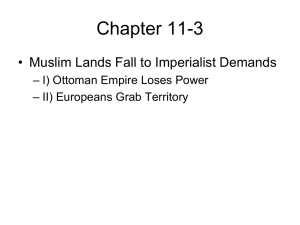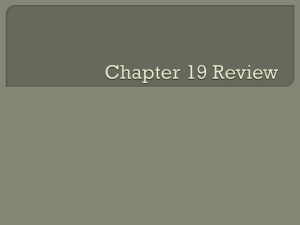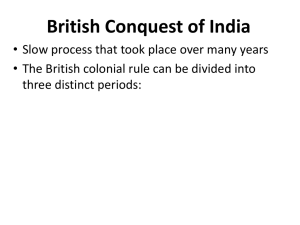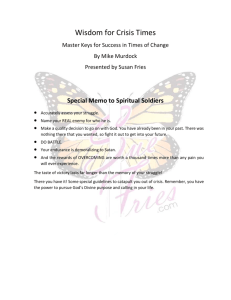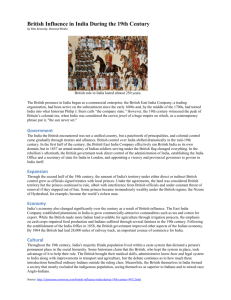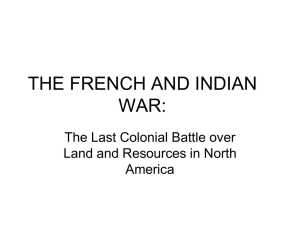Chapter 23: Independence & Development in the Global South
advertisement
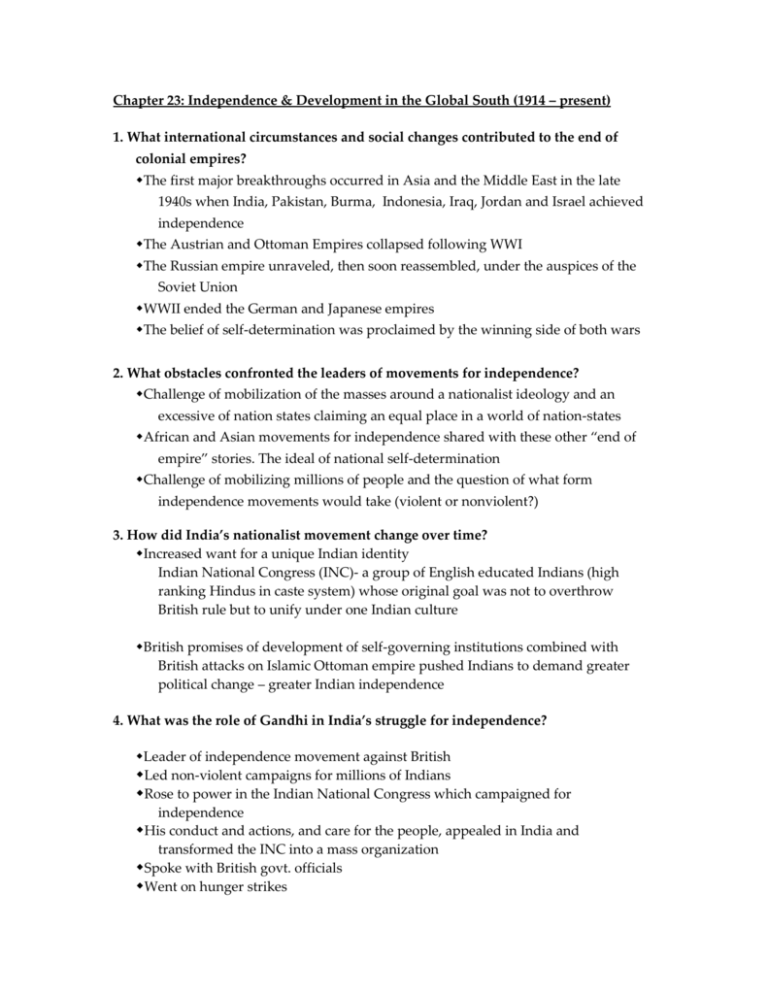
Chapter 23: Independence & Development in the Global South (1914 – present) 1. What international circumstances and social changes contributed to the end of colonial empires? The first major breakthroughs occurred in Asia and the Middle East in the late 1940s when India, Pakistan, Burma, Indonesia, Iraq, Jordan and Israel achieved independence The Austrian and Ottoman Empires collapsed following WWI The Russian empire unraveled, then soon reassembled, under the auspices of the Soviet Union WWII ended the German and Japanese empires The belief of self-determination was proclaimed by the winning side of both wars 2. What obstacles confronted the leaders of movements for independence? Challenge of mobilization of the masses around a nationalist ideology and an excessive of nation states claiming an equal place in a world of nation-states African and Asian movements for independence shared with these other “end of empire” stories. The ideal of national self-determination Challenge of mobilizing millions of people and the question of what form independence movements would take (violent or nonviolent?) 3. How did India’s nationalist movement change over time? Increased want for a unique Indian identity Indian National Congress (INC)- a group of English educated Indians (high ranking Hindus in caste system) whose original goal was not to overthrow British rule but to unify under one Indian culture British promises of development of self-governing institutions combined with British attacks on Islamic Ottoman empire pushed Indians to demand greater political change – greater Indian independence 4. What was the role of Gandhi in India’s struggle for independence? Leader of independence movement against British Led non-violent campaigns for millions of Indians Rose to power in the Indian National Congress which campaigned for independence His conduct and actions, and care for the people, appealed in India and transformed the INC into a mass organization Spoke with British govt. officials Went on hunger strikes Helped India gain independence in 1947 5. How did South Africa’s struggle against white domination change over time? Originally independence that had been granted to them from Great Britain was only given to a group solely controlled by a white settler minority Black African majority had no political rights at all Struggle was against internal problems rather than the European rulers Wanted to separate blacks from whites but still have black labor Isolated South Africa from Western World Freedom struggle in Africa was different than in India Nelson Mandela Once finally gained freedom, divided and conflicted Over race, ethnicity, and ideology Over time, gained more equality 6. Why was Africa’s experience with political democracy so different from that of India? India Western style democracy Regular elections Multiple parties Civil liberties Peaceful changes in government Prolonged affair Leadership sorts itself out British handed over power gradually until eventually, independence was given Based much more solely on traditions and culture that had been rooted for centuries Africa Lacked an educated electorate, a middle class, or a fairly capitalist economy Creating national unity was much more difficult Tribal culture Different groups Heavy demands on political system based on universal suffrage Economic performance since independence was the poorest in the developing world 7. What obstacles impeded the economic development of third-world countries? Economic development-a process that meant growth or increasing production as well as distributing the fruits of that growth to raise living standards. Represented the universal acceptance of beliefs unheard of not many centuries earlier Poverty was no longer inevitable and that it was possible to deliberately improve the material conditions of life for everyone Took place in societies sharply divided by class, revision, ethnic group, and gender Colonial rule had provided only the most slender foundations for modern development to these newly independent nations The entire effort occurred in a world split by rival superpowers and economically dominated by the powerful capitalist economies of the West 8. In what ways did cultural revolutions in Turkey and Iran reflect different understandings of the role of Islam in modern societies? Modern turkey emerged from the ashes of the ottoman empire as a republic led by a determined general Mustafa Kemal Ataturk He wanted to create a thoroughly modern and western Turkish society and viewed many traditional Islamic institutions beliefs and practices as obstacles to that goal The Caliphate had been officially ended sufi orders disbanded religious courts abolished and the Sharia replaced by Swiss legal codes Public education was completely secularized and the Latin alphabet replaced the Arabic script for writing the Turkish language The government ordered that the call to prayers should be made in Turkish rather than Arabic 9. In what ways did the colonial experience and the struggle for independence shape the agenda of developing countries in the second half of the twentieth century? -India national congress 1885, -Became divided into 2 different countries-a Muslim Pakistan and a Hindu India (sort of secular but still Hindu) -Some 12 million refugees moved from one country to the other to join their religious compatriots -Gandhi was assassinated 1928 -At least one million people died in communal violence -South Africa had slower process towards development -African rule was delayed until 1994 -By the early 20th century, South Africa had developed a mature industrial economy based off gold and diamond mining -Unlike India, south Africa was fighting for independence from their higher class fellow citizens, not fighting a colonial power -They were under extreme segregation laws -there was a rebellion because the government forced white tradition on blacks 10. How would you compare the historical experiences of India and China in the twentieth century?

